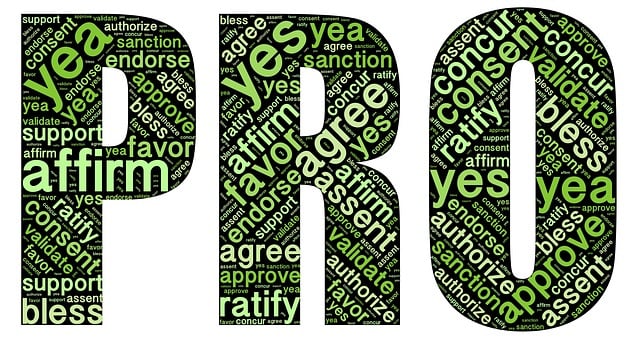Translation services for UK Informed Consent Forms are crucial to ensure patient safety, legal clarity, and ethical practices in healthcare and research. These forms require precise translations that meet stringent legal standards, preserve cultural sensitivity, and accurately convey complex medical and legal jargon. Professional translators with expertise in these fields are vital to overcome challenges like insufficient knowledge of specialized terminology or cultural references, ensuring multilingual participants fully understand their rights and responsibilities. Choosing reliable language service providers specializing in medical and legal translation is essential for maintaining accuracy, compliance with regulations like GDPR and the Human Tissue Act, and avoiding potential legal issues.
In the healthcare sector, ensuring accurate translations of consent forms is paramount for legal compliance in the UK. With a diverse patient population, professional translation services play a crucial role in mitigating risks and avoiding potential legal pitfalls. This article explores the intricacies of informed consent requirements in the UK, challenges in achieving precise translations, best practices for translators, and the importance of choosing reliable language service providers to meet regulatory standards, thereby safeguarding patients’ rights and healthcare organisations’ legal standing.
- Understanding UK Informed Consent Form Requirements
- Challenges in Achieving Accurate Translations
- The Role of Professional Translation Services
- Ensuring Quality: Best Practices for Translators
- Compliance and Legal Implications
- Choosing the Right Language Service Provider
Understanding UK Informed Consent Form Requirements

In the UK, informed consent is a fundamental principle in healthcare and research, ensuring patients understand procedures and voluntarily agree to participate. The Informed Consent Form (ICF) plays a critical role in this process, outlining essential information about the treatment or study. When dealing with multilingual participants or healthcare services, accurate translation of ICFs becomes imperative. Translation services for UK Informed Consent Forms must adhere to stringent legal requirements to maintain compliance and integrity.
Professional translators engaged in this task should possess medical or legal expertise to grasp the nuances of consent form language. They must ensure not only grammatical accuracy but also cultural sensitivity, preserving the meaning and intent of the original document. This meticulous approach guarantees that participants across diverse linguistic backgrounds fully comprehend their rights and obligations, fostering trust and ethical research practices.
Challenges in Achieving Accurate Translations

Achieving accurate translations for informed consent forms (ICFs) presents several unique challenges in the UK context. One significant hurdle is the nuanced language and complex terminology used within medical and legal documents, which often require a deep understanding of both source and target languages. Insufficient knowledge of specialized jargon or cultural references can lead to inaccurate interpretations, potentially causing confusion or even legal complications.
Another challenge lies in maintaining consistency across translations, ensuring that the meaning and intent of the original ICF are preserved precisely. Different translation services might employ varying styles or use different terms for similar concepts, introducing ambiguity. This is especially critical in healthcare settings where clear communication is paramount to patient safety and understanding. Therefore, utilizing reputable translation services with experience in UK-specific ICF translations is essential to mitigate these challenges.
The Role of Professional Translation Services

In ensuring accuracy in consent form translations for UK compliance, professional translation services play a pivotal role. These services employ specialized translators who are fluent in both the source and target languages, as well as familiar with legal terminology and cultural nuances. They go beyond simple word-for-word substitutions, aiming to convey the exact meaning and intent of the original document while adhering to local regulations.
Professional translation services for UK informed consent forms not only guarantee linguistic precision but also maintain the integrity of critical information. Their experts can navigate complex medical, legal, or scientific jargon, ensuring that translated forms remain legally sound and understandable for all recipients. This is particularly crucial in healthcare settings where clear and accurate communication is essential to protect patient rights and welfare.
Ensuring Quality: Best Practices for Translators

Ensuring quality in translations of informed consent forms is paramount, especially within the UK healthcare sector where precision and clarity are non-negotiable. Professional translators must possess a deep understanding of both the source and target languages, as well as legal terminology specific to medical contexts. A robust approach involves adhering to industry standards such as ISO 17100 for translation services, which guarantees consistency and accuracy.
Best practices include extensive research into medical jargon and cultural nuances to avoid ambiguities. Translators should also confer with subject matter experts (e.g., healthcare professionals) throughout the process. Using specialized software for terminology management and quality assurance is another effective strategy. Additionally, peer review and client feedback loops are essential for refining translations and ensuring they meet UK regulatory requirements for informed consent forms.
Compliance and Legal Implications

In the medical field, consent forms play a critical role in ensuring patient rights and legal protection. When dealing with international patients or research studies involving multilingual participants, translation services for UK informed consent forms become indispensable. Accurate translations are not merely desirable but legally required to maintain compliance with regulations such as the General Data Protection Regulation (GDPR) and the Human Tissue Act.
Inaccurate or inadequate translations can lead to severe legal implications, including breach of patient privacy, non-compliance with research ethics, and potential litigation. Therefore, when selecting translation services for UK informed consent forms, it’s crucial to opt for professional, certified translators who are familiar with medical terminology and local legal requirements. This guarantees not only the precision of translations but also safeguards against unintended consequences that could arise from linguistic or legal errors.
Choosing the Right Language Service Provider

When it comes to ensuring accuracy in consent form translations for UK compliance, selecting the right language service provider is paramount. Look for a provider with extensive experience in medical and legal translation, as these fields require precise terminology and cultural nuance. Reputable firms employ native speakers who understand not just the words but also the context, minimising the risk of misinterpretation that could lead to regulatory issues.
Informed consent forms, by their nature, demand meticulous attention to detail. The provider should offer quality assurance processes, including proofreading and editing by subject matter experts, to catch any errors or ambiguities. Additionally, they should be familiar with the UK’s healthcare and legal systems to accurately translate regulations and standards into the target language(s).
Accurate translations of consent forms are paramount in ensuring compliance with UK regulations. Navigating the complexities of language and legal requirements can be challenging, but professional translation services play a vital role in minimizing errors. By adopting best practices and choosing reputable providers, organizations can ensure high-quality translations that meet legal standards, thereby fostering trust and protecting patient rights within the UK healthcare landscape. Translation services for UK Informed Consent Forms should be a strategic priority for any entity seeking compliance and operational excellence.
